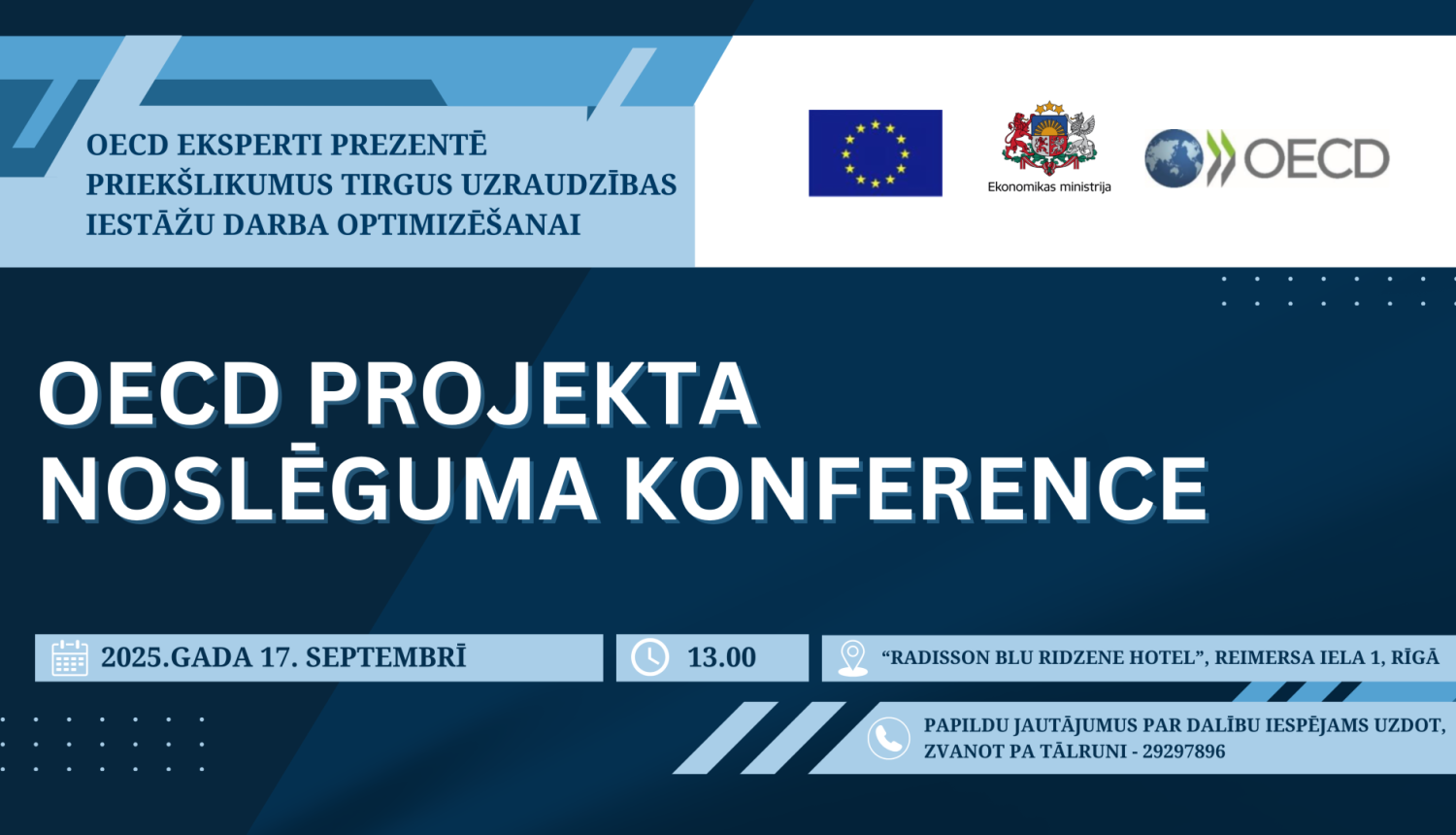Translated using ChatGPT service.
The project developed by the Ministry of Economics (MoE) with the support of the European Commission’s (EC) Structural Reform Programme has concluded. Over the course of two years, the project evaluated the market supervision system in Latvia. The results of the project will be presented at a conference on Wednesday, 17 September.
The project’s closing conference will take place on 17 September at 1:00 PM at the Radisson Blu Rīdzene Hotel, Reimersa Street 1, Riga. The conference will present recommendations tailored for Latvia and strategic directions for improving the system. A panel discussion involving stakeholders will also be held on the practical implementation of these recommendations to enhance Latvia’s market supervision system. Media representatives are invited to attend. Prior registration is required by emailing san@em.gov.lv.
“Market supervision is not just a technical function—it forms the foundation of public trust in our economy. A more effective market supervision system will benefit all parties. Businesses will gain fair competition and clear operational rules. Consumers will have greater confidence in the market and better access to information about product safety. For the state, this means more efficient use of resources and a stronger economy,” emphasizes Minister of Economics Viktors Valainis.
To reduce bureaucracy and improve public administration efficiency, the MoE has initiated reforms in several areas, implementing measures to simplify processes in construction, metrology, and structural fund management. The next area of reform identified by the ministry is the enhancement of the market supervision system to ensure it operates more efficiently and meets modern challenges.
In the autumn of 2023, MoE experts developed and submitted to the EC Structural Reform Programme the project “Creating a More Effective and Impactful Market Supervision System for Latvia.” Over two years, OECD experts selected through the EC procurement process evaluated the system’s operations, trained specialists from market supervision authorities, and developed proposals for further reforms.



